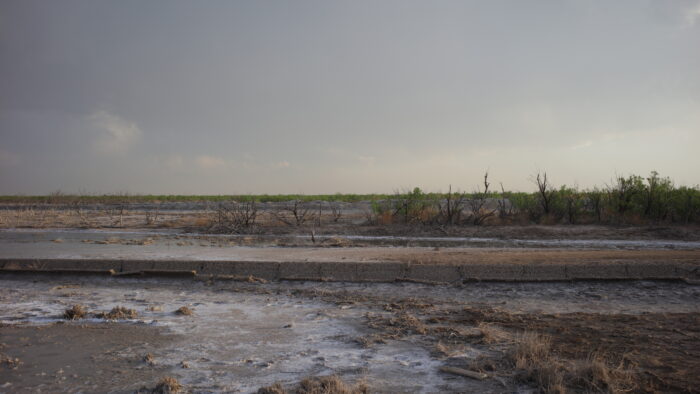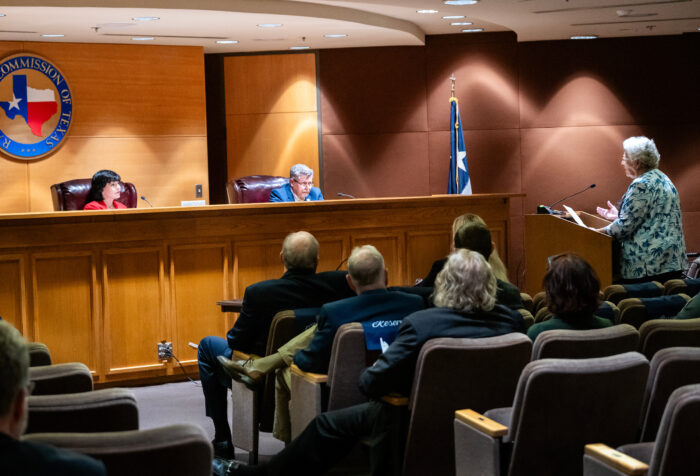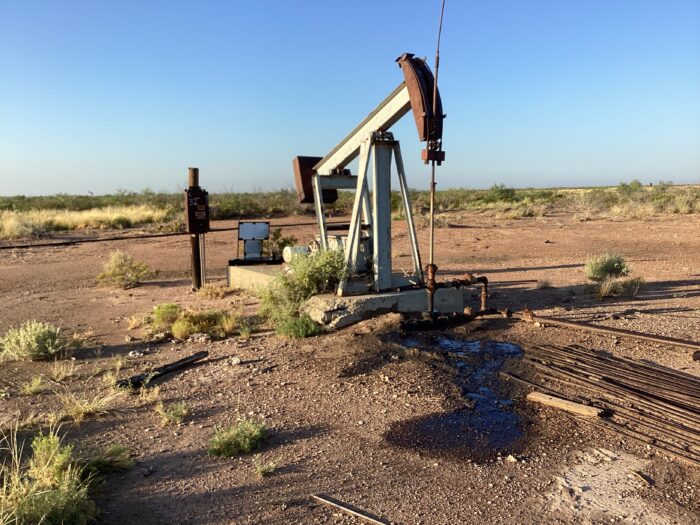Julie Range Testimony to the Railroad Commission, April 2025
As oil and gas development expands across the state, Texas residents increasingly wonder what they can do to protect themselves from problems like pollution. Drilling is a dangerous business; when a company breaks the rules in a community, it’s important to know who can hold them accountable. Unfortunately, filing complaints with Texas’ regulatory agencies can be tough, especially for those that find themselves having to deal with the Railroad Commission. The commission’s website reflects the agency’s long-outdated information system. Visitors often describe trouble locating basic information such as how to contest permits or what steps they should take when impacted by chemicals and fumes from drilling.
Inclusive decision making is one of Commission Shift’s core values. We believe that oil and gas workers, farmers and ranchers, neighbors of oil and gas development, students of Texas’ public schools, energy consumers, and the many others that are affected by the oil and gas industry in Texas deserve stability, safety, clean air, and clean water.
Our state can achieve better results in rulemakings, strategic plans, permit proceedings, and more when the public is meaningfully engaged, authentically listened to, and when their needs are incorporated into decisions.
The Railroad Commission hosts a monthly or biweekly Open Meeting where they approve recommended orders presented by the commission’s hearings examiners, administrative law judges, counsel, and staff. The public can sign up to comment on an agenda item or during the public input session. If you sign up for an agenda item, the commissioners may choose not to call on you. If you wish to speak on a matter that is not on the agenda, you may also sign up for public input. Typically, commenters are allowed five minutes for public input.
Instructions on how to sign up for public input or to give comment on an agenda item are available on the Railroad Commission Open Meeting agendas, which can be found on the commission’s website. The commission posts meeting agendas one week prior to each meeting. You must sign up by noon the day before the meeting to give comment on an agenda item or public input on an item that is not on the agenda.
There is a dangerous lack of public input at the Railroad Commission. As opportunities arise for public comment on commission reports and rulemakings, Commission Shift is mobilizing Texans – especially those most affected by oil and gas pollution.
One major gap in the Railroad Commission’s public participation processes is the absence of language accommodation. Even though many Texans prefer Spanish or Vietnamese, the Railroad Commission does not provide information on its website in any languages other than English, nor does it offer language accessibility services in its proceedings.
Commission Shift previews and summarizes Railroad Commission public meetings to make sure more Texans know what this critically important state agency is doing. As we build out our language justice program, we will be able to offer more materials in other languages.
We see a need for sustained outreach by the Railroad Commission in communities that need language accommodation, so that we can improve awareness and public participation among communities affected by oil and gas development. Commission Shift recently provided on an API Standard (RP 1185) on Public Engagement, advocating for better language accommodation by pipeline companies. Once approved, the standard could be incorporated into federal or state rulemakings.

Texas regulators overhaul oilfield waste rule for the first time in four decades Inside Climate NewsOdessa American OnlineThe Texas Tribune

Is the Railroad Commission Actually Becoming More Transparent? Dallas Morning News

For Texans, fighting state-regulated oilfield waste dumps can be a costly, do-it-yourself effort The Texas Tribune